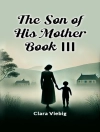In 'The Black Avons III – From Waterloo to the Mutiny, ’ Edgar Wallace deftly weaves a historical narrative that explores the tumultuous events following the Battle of Waterloo, extending through the Indian Rebellion of 1857. Wallace employs a vivid and engaging literary style, characterized by his meticulous attention to detail and dramatic pacing, capturing both the grandeur and the grim realities of the era. The novel serves as a continuation of his exploration of imperial conflicts, illustrating the intersecting fates of soldiers, civilians, and empires amidst a backdrop of shifting loyalties and cultural tensions. This compelling tapestry of historical events is further enhanced by Wallace’s deep understanding of the socio-political landscapes of his time, providing readers with both insight and suspense. Edgar Wallace, a prolific English writer and journalist of the early 20th century, was known for his fascination with crime, intrigue, and adventure. His extensive travels and experiences in reporting on various conflicts undoubtedly shaped his narrative approach and thematic choices in this book. Wallace’s passion for unraveling the complexities of human behavior within historical contexts manifests poignantly in this installment, drawing from his extensive literary repertoire and keen perception of the human condition. Readers are highly encouraged to delve into 'The Black Avons III – From Waterloo to the Mutiny, ’ which not only serves as a thrilling excursion into historical fiction but also offers a profound reflection on the interplay between war and human vulnerability. With its rich landscape of characters and immersive storytelling, this book promises to captivate those intrigued by history and its far-reaching implications.
O autorze
Edgar Wallace was an English writer born on April 1, 1875, in London. One of the most prolific writers of the 20th century, Wallace’s literary career spanned various genres, including crime, adventure, and historical novels. His distinct narrative style, characterized by fast-paced plots and engaging dialogue, captivated a global readership. Among his extensive body of work, 'The Black Avons III – From Waterloo to the Mutiny’ stands as a testament to his ability to weave intricate narratives set against the backdrop of significant historical events. This book exemplifies Wallace’s interest in historical fiction, chronicling the saga of a family lineage during critical moments in British history. Wallace’s influence on popular fiction cannot be understated; he is often credited with shaping the modern thriller genre. Despite his passing on February 10, 1932, his work continues to enthral readers and has cemented his legacy as a cornerstone of early 20th-century literature. His prolific output and popular appeal have ensured that Edgar Wallace’s name endures, with many of his works adapted for stage, screen, and radio over the years.












